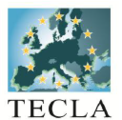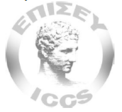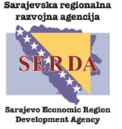Speakers provided a detailed overview upon the most interesting cloud cases and strategies, with the main purpose to stimulate sharing information about concepts and different views on the topic. The agenda included:
1 SECOVIA – Project & Cloud computing - Definitions & characteristics (by Mr. Gregor Erznožnik, project manager BSC Kranj)
General overview of some major issues, such as benefits and advantages of using cloud computing in public administration.
2. SECOVIA – Cloud proposal for SAS strategy - today for tomorrow (by Mr. Martin Butina, director Fasecor Ltd)
In this presentation speaker presented Network access and management activities, remote access, embodiment of recognized concepts. They showed differences between outsourcing and SaaS and cloud computing. Trends in the development of providers of Cloud computing. In which directions goes development and state of the market in Slovenia.
3. SECOVIA – Genie IT in a Box (by Mr. Martin Butina; director Fasecor Ltd.)
What are the key problems of providers? Inflexibility, unresponsiveness, Information hole and lack of competitiveness syndrome “Doctor for all”. Who provides business support (Google, Office, Opex, Cloud,…). IT as a necessity?! IT is essential to achieve competition and provide market advantages (EU guidelines by 2020). IT is a key component of service organizations, while IT solves in particular the organization and responsiveness of the organization. Companies need to use IT to innovate. If the IT is need, than the genie is analogy, business support and infrastructure.
4. SECOVIA – The Next Momentum in ITSM (by Mr. Martin Butina; director Fasecor Ltd.)
Presentation provided an overview on IT Executives challenges, past achievements, taxonomy of a Cloud & Importance of ITSM, what to do about it, roles and responsibilities, opportunities and the next momentum.
After the final presentation, a lively discussion started on applying cloud computing solutions to public services - pro and contra, benefits and lack of them. Participants especially representatives form municipalities came to the same agreement (conclusion) that cloud computing infrastructures and virtual solutions can definitely contribute to the minimization of administrative work, of its complexity and costs. It can help in the administrative work in the municipality and provide user-friendly services for the citizens and employees, which means simplify both user and consumer side.















